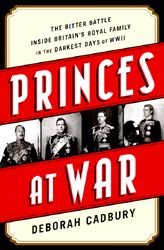Two members of the Lincoln and Booth families had met before the assassination, under circumstances quite different from those of April 1865. The encounter took place on a crowded train station platform in Jersey City, New Jersey, as President Lincoln’s eldest son Robert (right) stood waiting to purchase a sleeping-car ticket for a journey to Washington. The impatient throng suddenly pressed forward, pinning young Lincoln against a railroad car. Just then the train began to move down the track, lifting Robert off his feet and dropping him into an open space between the car and the platform.
An alert bystander, seeing that the young man was in danger, dropped his valise, held his ticket in his mouth and yanked Lincoln to safety by the collar of his coat. As Robert recalled, “Upon turning to thank my rescuer I saw it was Edwin Booth, whose face was of course well known to me, and I expressed my gratitude to him, and in doing so, called him by name.”
The two men did not meet again, but in the years that followed, a distraught Edwin Booth would find comfort in the knowledge that he had once saved the life of Abraham Lincoln’s son.

Robert Todd Lincoln wu a H arvard UntvetMty student when thiv was taken in 1%62.
Reported that Jacob Thompson, the Confederate commissioner in Canada who had fomented wartime disorder in the Great Lakes region, was about to take a steamer for Liverpool from Portland, Maine. Should he be arrested? Although told that Stanton had said yes, Lincoln thought a bit and then drawled: “No, I rather think not. When you have an elephant by the hind leg, and he’s trying to run away, it’s best to let him run.” It was time for the carriage ride. Lincoln was in high spirits, talking about the four years to come in Washington — to be followed, perhaps, by a return to his law practice in Springfield and the purchase of a prairie farm on the banks of the Sangamon River. “I never felt so happy in my life,” he had told Mary. Indeed, his happiness was so marked and unusual that she felt a little taken aback and told him so. The President stroked her hand. “And well I may feel so,” he said. “Mother, I consider that this day the War has come to an end. We must both be cheerful in the future.”
But Mary was cautious. She replied: “Don’t you remember feeling just so before our little boy died?”
By now the afternoon was waning, and still there had been no message from General Sherman in North Carolina. Accompanied by his bodyguard, William Crook, Lincoln walked over to the War Department to see if some news had happened to come in on the wire. On the way, they saw some men who had obviously been toasting the War’s imminent conclusion. Abraham Lincoln had a mercurial temperament, and at the sight of the carousing men his previously high spirits seemed to disappear.
“Crook,” said the President somberly, “do you know, I believe there are men who want to take my life.” He hesitated, then added as if to himself: “And I have no doubt they will do it.”
The morbid thought was surely still on Lincoln’s mind when, after finding out that there had been no further developments on Sherman’s front, he made an unusual request of Secretary Stanton. Lincoln reminded Stanton that he had a theater engagement in the evening; he then went on to say: “I have seen Eckert break five pokers, one after the other, over his arm, and I am thinking he would be the kind of man to go with me this evening. May I have him?”
Major Thomas Eckert was indeed a powerful man; although Lincoln wanted him along primarily as a companion, he might also have felt that Eckert could provide considerable protection. But Stanton strongly disapproved of Lincoln’s theatergoing, and in order to discourage it he said that Eckert had important work to do. When Lincoln put the question to Eckert himself, the major confirmed what Stanton had said.
During the walk back to the White House, Lincoln spoke to Crook about his prospective theater trip: “It has been advertised that we will be there, and I cannot disappoint the people. Otherwise I would not go. I do not want to go.” And when the two climbed the stairs to the White House, the President turned to Crook, who was already supposed to be off duty, and said: “Goodbye, Crook.” Years later, the bodyguard would recall that “It startled me. He had never said anything but ‘Goodnight, Crook’ before.”
Lincoln’s mood improved when he found that a pair of old Illinois friends — Governor Richard Oglesby and Senator Richard Yates — had come by to say hello. Taking them into his office, Lincoln read them selected passages from the latest work of Petroleum Vesuvius Nasby, a humorist whose caustic wit particularly appealed to the President. The three men enjoyed themselves so much that Mrs. Lincoln finally had to send word that supper was waiting.
During the meal, the President tried to persuade Robert Lincoln to join them at the theater. The young officer said he was too tired. Mary Lincoln explained that she had invited a young engaged couple — 28-year-old Major Henry Reed Rathbone and 20-year-old Clara Harris, the daughter of New York Senator Ira Harris. All told, the President and Mrs. Lincoln had invited roughly a dozen people to accompany them to Ford’s Theatre. Everyone but Clara Harris and Henry Rathbone had for a variety of reasons declined.
While the Lincolns were eating, William Crook was fuming. His relief as bodyguard, John F. Parker, had been scheduled to come on duty at 4 p. m. It was nearly 7 o’clock, and still Parker had not shown up. He was

The Lincolns’ theater guests were a betrothed couple, Major Henry R. Rathbone and Clara H. Harris. The two wed in 1867, but their future was scarred by Rathbone’s inability to forgive himself for failing to protect President Lincoln. Ultimately Rath-bone’s anguish drove him mad, and in 1894 he murdered Clara; he spent his remaining years in an asylum.
Scarcely a dependable man: As a member of the Metropolitan Police, he had survived a long history of delinquencies and official reprimands for insubordination and drunkenness on duty. He regularly associated with prostitutes and, on one occasion, had fired a pistol through the window of a brothel. Although his spotty record was not unique among the generally lackluster wartime police, Parker had no special qualifications that merited his assignment to the detail at the White House.
Oddly enough, John Parker’s position on the detail had been preserved for him less than two weeks earlier by none other than Mary Todd Lincoln. Having returned to Washington while the President stayed on at City Point, Mrs. Lincoln had taken it on herself to give Parker protection from the military draft: She proceeded to write a note certifying that he was “detailed for duty at the Executive Mansion.”
On this evening, Parker reported for duty at the White House three hours late and was told to be on hand at Ford’s Theatre when the President got there. The White House doorman, Thomas Pendel, who himself had once been a bodyguard for Lincoln, asked Parker whether he “had his revolver and everything all ready to protect the President in case of an assault.”
Another doorman, who was named Alfonso Dunn, spoke up. “Oh, Tommy,” he said, “there is no danger.”
Replied Pendel: “Dunn, you don’t know what might happen.” And then, to Parker:

I't I
R
The President’s box was patriotically decorated for his visit: American flags flank the box and cover the rail, and the regimental banner of the U. S. Treasury Guards hangs at the center pillar, above an engraving of George Washington. The upper tier of benches to the right of the box is the family circle, and the seats on the level below are those of the dress circle.
“Now you Start down to the theater, to be ready when he reaches there.” Shortly before 8 p. m., John Parker made his way to Ford’s Theatre and awaited the arrival of the President.
Meanwhile, Lincoln was having a hard time getting away. Although his carriage was already waiting, he returned to his office to see Speaker Colfax, who had come by again, this time on routine Congressional business. Hardly was Colfax out the door when in came Massachusetts Representative George Ashmun, who had been a supporter of Lincoln throughout the Civil War. Ashmun was trying to obtain a favor for one of his friends, who was a cotton trader. When the President said something derogatory about speculators, Ashmun took the remark personally, and the President hastened to make amends. “You did not understand me, Ashmun,” he said. “I did not mean what you inferred. I take it all back.”
Around that time, Mary Lincoln appeared in the office doorway, attired in a low-cut, gray silk gown and impatiently pulling on her gloves. That was the President’s signal: Excusing himself, he left the White House, got into his carriage and drove off into a misty night.
It was nearly 8:30 p. m. Our American Cousin was already well under way when the Lincolns, having stopped to pick up their guests, entered Ford’s Theatre and slowly made their way to the presidential box. Young Harry Ford had personally decorated the box, flanking it with American flags and draping additional flags across the balustrade, which was dominated by an engraving of George Washington. The play came to a halt, the orchestra struck up “Hail to the Chief” and all eyes turned to the presidential party. Miss Harris took her place toward the front of the box on the far right, with Major Rathbone seated on a sofa slightly behind her. Mary Lincoln was to their left, while the President was on the extreme left, in an upholstered rocking chair that fitted neatly into the corner of the box. Although Lincoln was thus seated nearest to the audience, he was so concealed by draperies that he could be seen by those in the orchestra only when he leaned forward.
When the play resumed, actor Harry Hawk ad-libbed a line: “This reminds me of a story, as Mr. Lincoln would say.” The members of the audience laughed and applauded, and Lincoln, with a smile on his face, murmured something to his wife. A little later, he noticed that Henry Rathbone was holding Clara Harris’ hand. Reaching over, he covered Mary’s hand with his own.
“What will Miss Harris think of me,” whispered Mrs. Lincoln.
“Why,” said the President, “she will think nothing about it.” Later on in the evening, as if he had suddenly felt a chill, he stood and put on his overcoat. He then sat down again, absorbed in the play.
Sometime between 9:30 and 10 p. m., John Wilkes Booth rode into Baptist Alley. “Ned!” he called, repeating the summons three or four times until Spangler finally came out of the theater. Asked to hold Booth’s horse, the stagehand replied that he could not stay outside the theater while the play was in progress. “But,” he said, “I will call Peanut John.”
Peanut John was Joseph Burroughs, who had come by his nickname selling peanuts outside Ford’s Theatre when it first opened. Now he had graduated to being a general





 World History
World History









